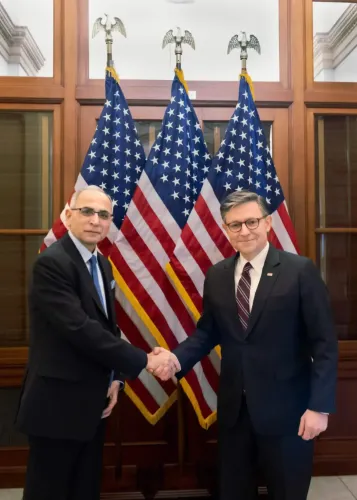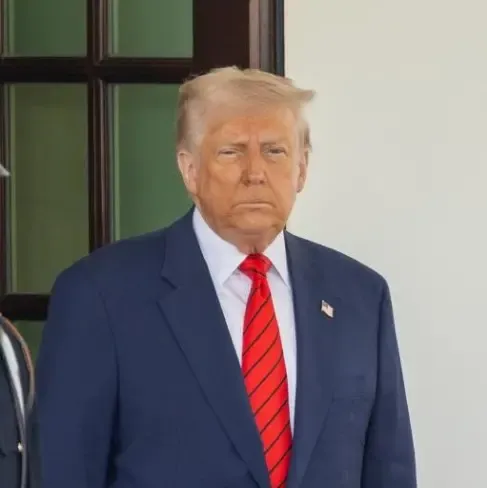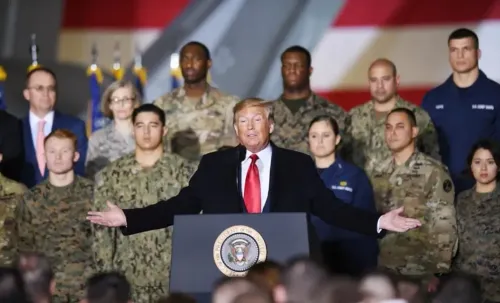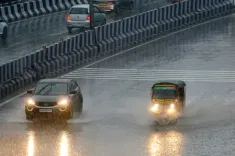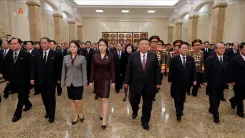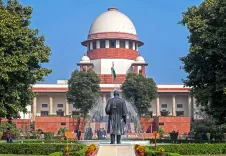How is Piyush Goyal working with EU officials to expedite free trade agreement talks?
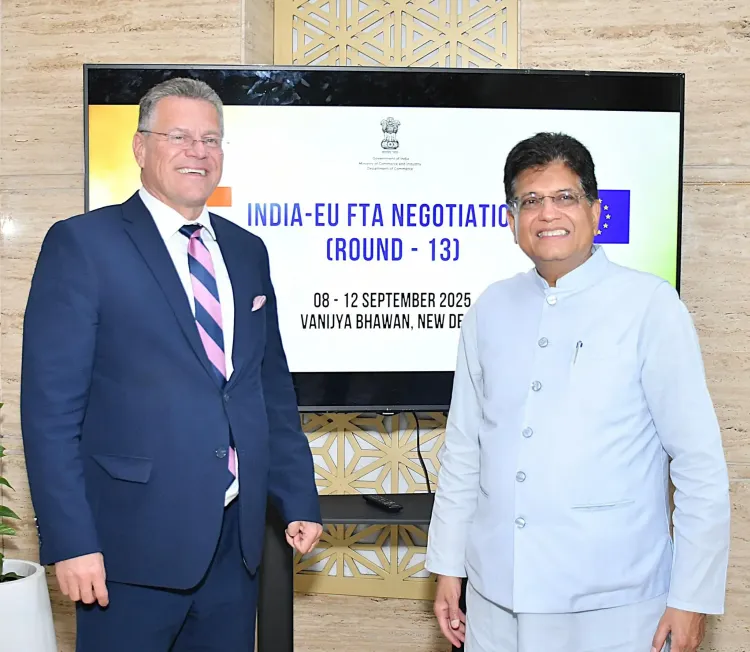
Synopsis
Key Takeaways
- Piyush Goyal is actively pursuing a comprehensive FTA with the EU.
- The two parties have completed 11 chapters of negotiation.
- Focus on non-tariff barriers is crucial for meaningful progress.
- The EU is India’s largest trading partner, with significant trade volume.
- Upcoming rounds of negotiations will take place in New Delhi and Brussels.
New Delhi, Sep 12 (NationPress) The Union Minister of Commerce and Industry, Piyush Goyal, engaged in discussions on Friday with EU Commissioner for Agriculture and Food, Christophe Hansen, and EU Commissioner for Trade and Economic Security, Maros Sefcovic, along with other representatives from the EU delegation. This meeting was part of ongoing efforts to accelerate the finalization of a comprehensive free trade agreement (FTA).
Goyal remarked, "Our commitment to achieving a balanced and mutually advantageous FTA remains steadfast, paving the way for new business opportunities and enhancing the shared growth of India and the EU."
As the negotiations for the India-EU FTA progress, he emphasized the mutual dedication to its swift conclusion. A balanced and beneficial FTA is expected to create numerous opportunities for individuals and businesses on both sides, Goyal stated in a post on X, marking the 13th round of negotiations.
He added, "Both India and the EU stand to gain significantly from the Free Trade Agreement we are diligently pursuing."
During the recent discussions, India highlighted that substantial progress in trade negotiations necessitates equal attention to non-tariff barriers (NTBs) alongside tariff issues. It also asserted that regulatory frameworks should be inclusive, proportionate, and should not hinder trade.
The two parties have completed 11 chapters, which include customs, trade facilitation, digital trade, and capital movements, yet there remain considerable discrepancies concerning rules of origin, market access, and tariffs on products such as wine and dairy.
The EU is recognized as India's largest trading partner, with bilateral goods trade hitting $135 billion in the 2023-24 period. The 13th round of FTA discussions is scheduled for this week in New Delhi, followed by another session in Brussels.
While addressing the Automotive Component Manufacturers Association of India (ACMA) event, Goyal expressed optimism about the proposed FTA's advantages for the auto sector.
"I am confident that the auto industry will discover the arrangements we establish to be highly attractive and beneficial for your business growth, collaboration with European partners, and encouraging innovation and research development in India," noted the minister.
In a separate meeting, Foreign Secretary Vikram Misri also met with the European Union Political and Security Committee (PSC) delegation, led by Chair Delphine Pronk, on Friday.
In a message on X, MEA Spokesperson Randhir Jaiswal mentioned, "Foreign Secretary Vikram Misri engaged today with the EU PSC delegation, marking its inaugural visit to Asia. Discussions centered on enhancing security and defense collaboration under the India-EU Strategic Partnership and exchanging views on recent regional and global developments."


